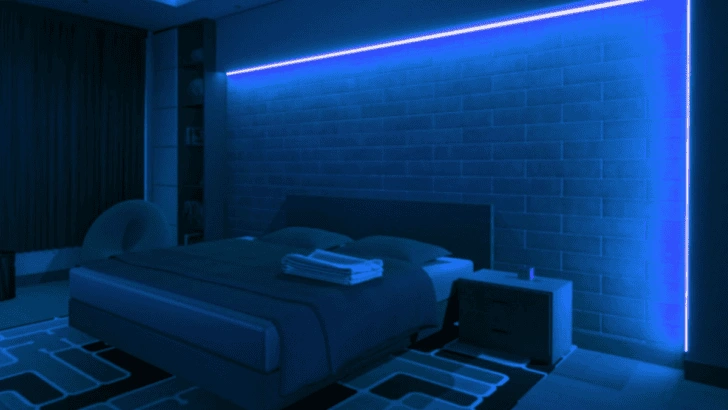- The Best Natural Menopause Sleep Aids: a Psychotherapist’s Take - February 12, 2026
- 5 Things You Can Do Today to Keep Your Sheets Bacteria-Free - February 8, 2026
- Best Sheets for Summer - February 6, 2026
Between life stresses, never-ending To-Do lists, incessant screen time, and inconsistent schedules, quality rest feels impossible… like your brain doesn’t know how to power down at the end of the day.
That’s where sleep tech comes in, and it’s wild how far it’s come in recent years.
From temperature-regulating mattress covers to wearable sleep coaches, a new wave of highly intelligent gadgets promises to help us fall asleep faster, stay asleep longer, and wake up actually feeling rested.
(Imagine that!)
The Best Sleep Technology (At A Glance)
| Compare | Solution Type | Price Tag | Subscription |
| Eight Sleep System | Entire sleep surface climate control | $2,449–$5,249 depending on model and mattress size | Yes, separate from purchase |
| Nitetronic Z6 Pillow | Anti-snoring device | $699 | No |
| Ozlo Sleep Buds | Streaming to sleep | $349 | Only for rentals |
| Bía Sleep Mask | Light and sound control | $779–$2,499 | Yes, included with purchase |
| Apollo Neuro | Calming | $349 | Yes |
| Oura Ring 4 | Sleep tracking | $349+ | Yes, separate from purchase |
| Hatch Restore | Bedtime routine improvement, natural wake-up alarm | $169 | Yes, separate from purchase |
| Dyson Humidify+Cool | Air purification and humidification | $999 | No |
| Gravity Blanket | Weighted blanket | $189+ | No |
We’re so lucky to live in a world where technological advances can deliver more restful sleep to the masses, no matter what they’re struggling with, and it’s pretty amazing stuff. If you’re tired of being tired, I feel you… And this article is definitely for you.
The Best Sleep Technology When You’re A Restless Sleeper
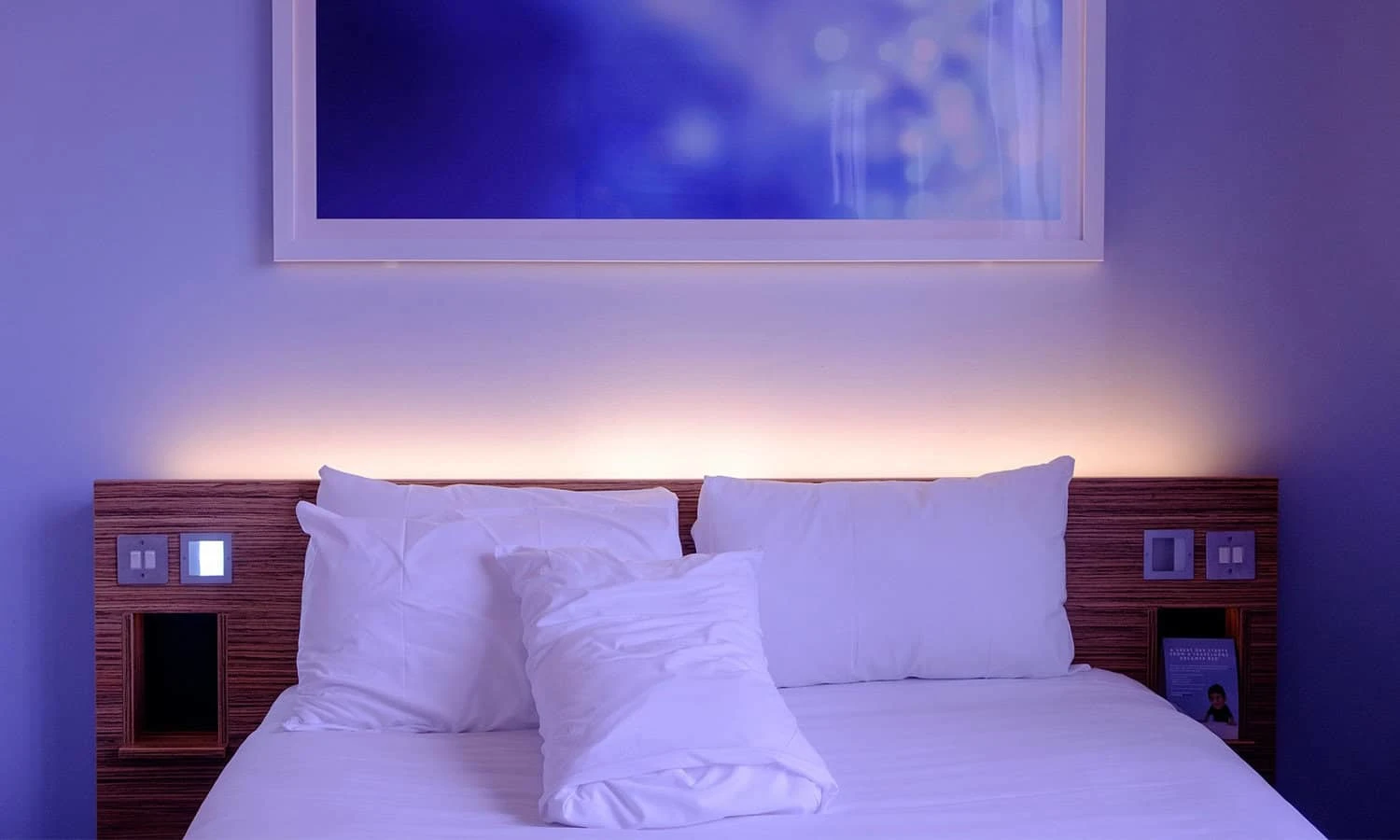
Whether you’re dealing with too much light or sound in your sleeping environment, a mattress surface that makes you too hot (or too cold) to sleep, or a combination of other factors are keeping you awake at night, there are plenty of tech-driven solutions that can help you to (finally) catch those elusive Zzzs.
Eight Sleep System
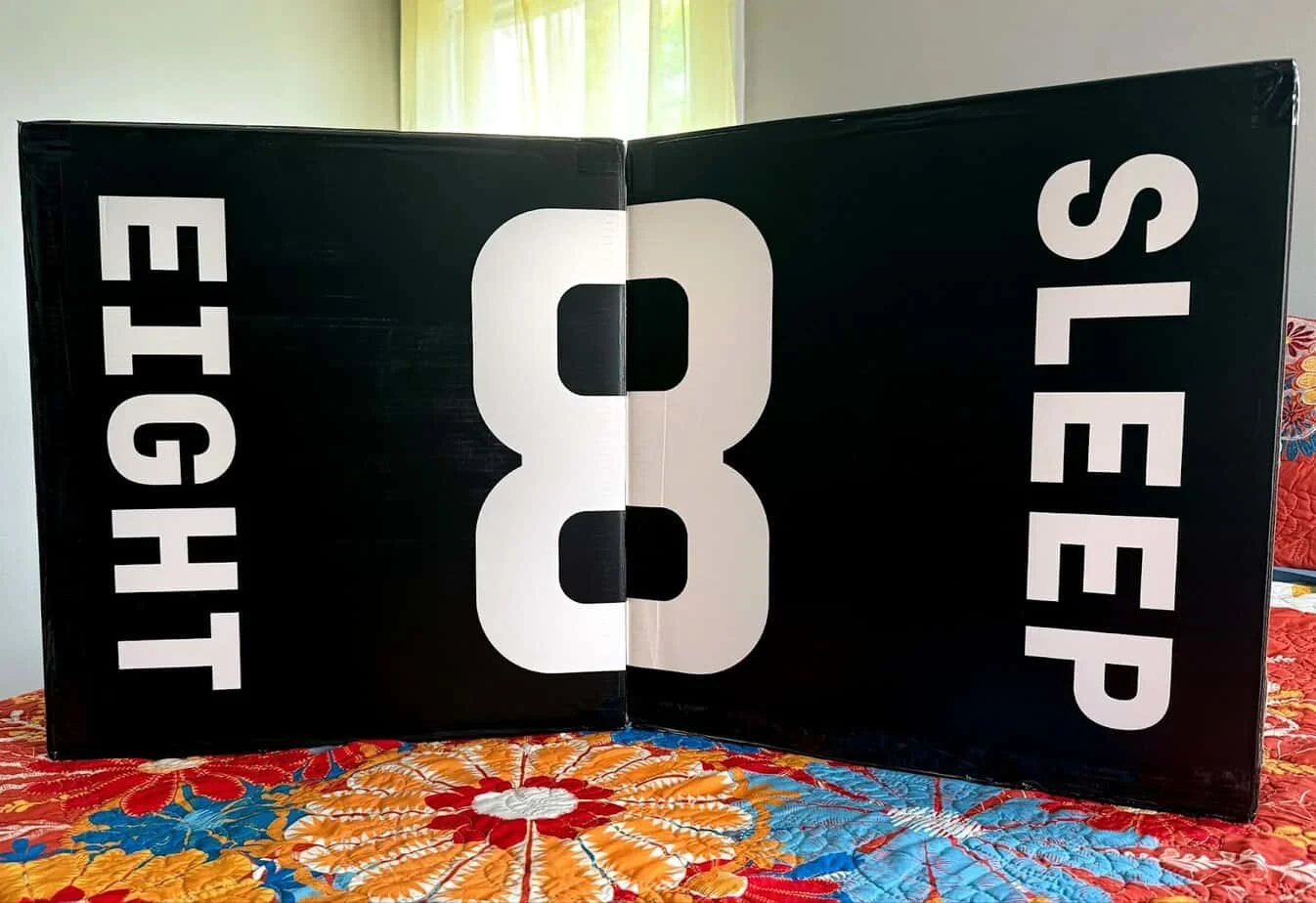
If temperature control is what you need, the Eight Sleep Pod is hands-down the best option out there. I have a Pod 4, myself, and it’s changed everything about the way I sleep at night.
Although the Eight Sleep has a considerable cost associated with it, it is an all-in-one solution when your sleep surface is too hot or too cold, especially if you share your bed with a partner.
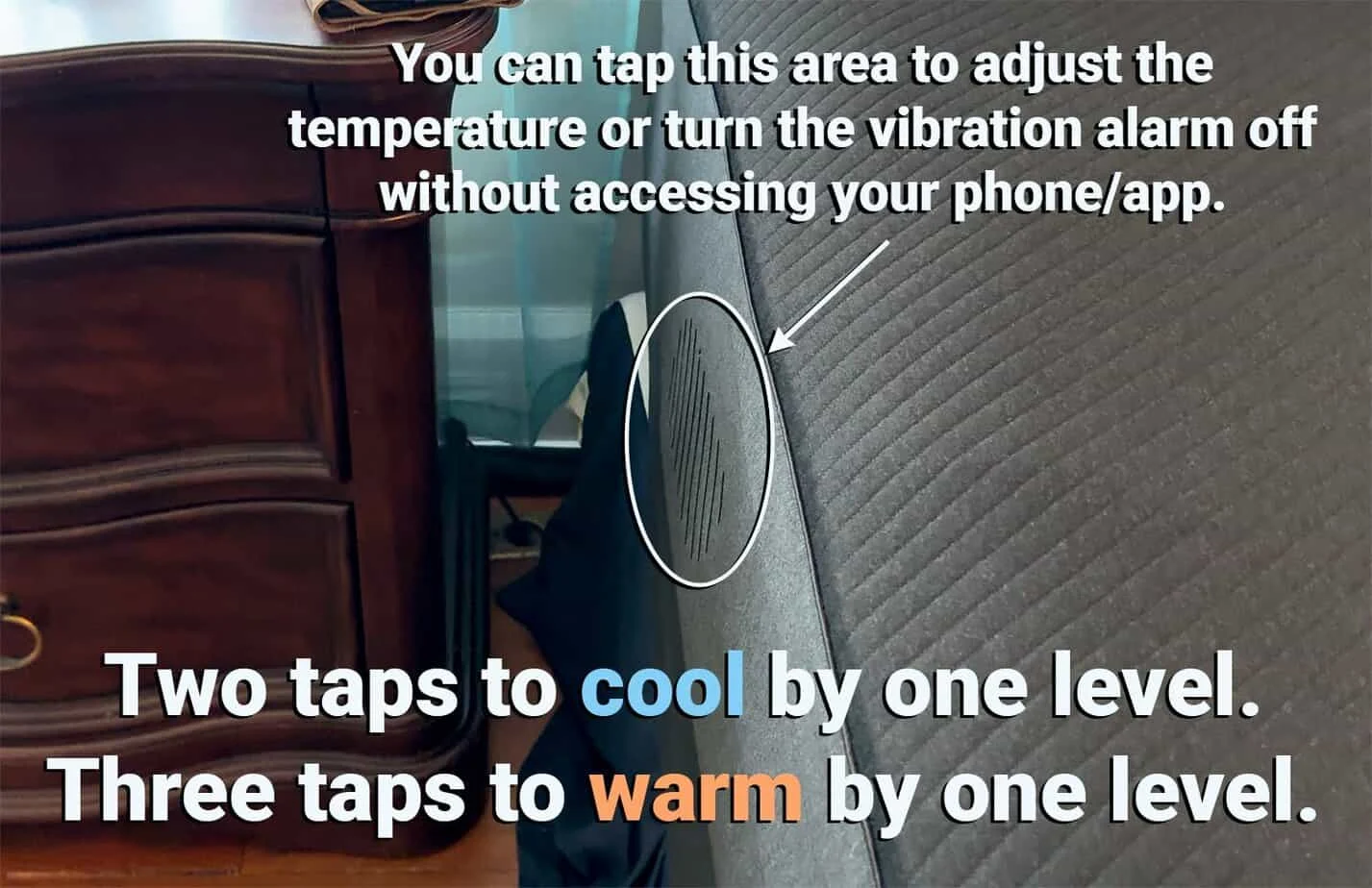
The Pod cover wraps snugly over your existing mattress (10–16″ thick), connects to a hub that looks a lot like a desktop computer, and pumps water in a temperature range from 55°F to 110°F, and adjusts in real time based on your body and room temperature. So basically, no more waking up sweaty or freezing mid-sleep; the Eight Sleep reacts and customizes your personal sleep climate all night long.
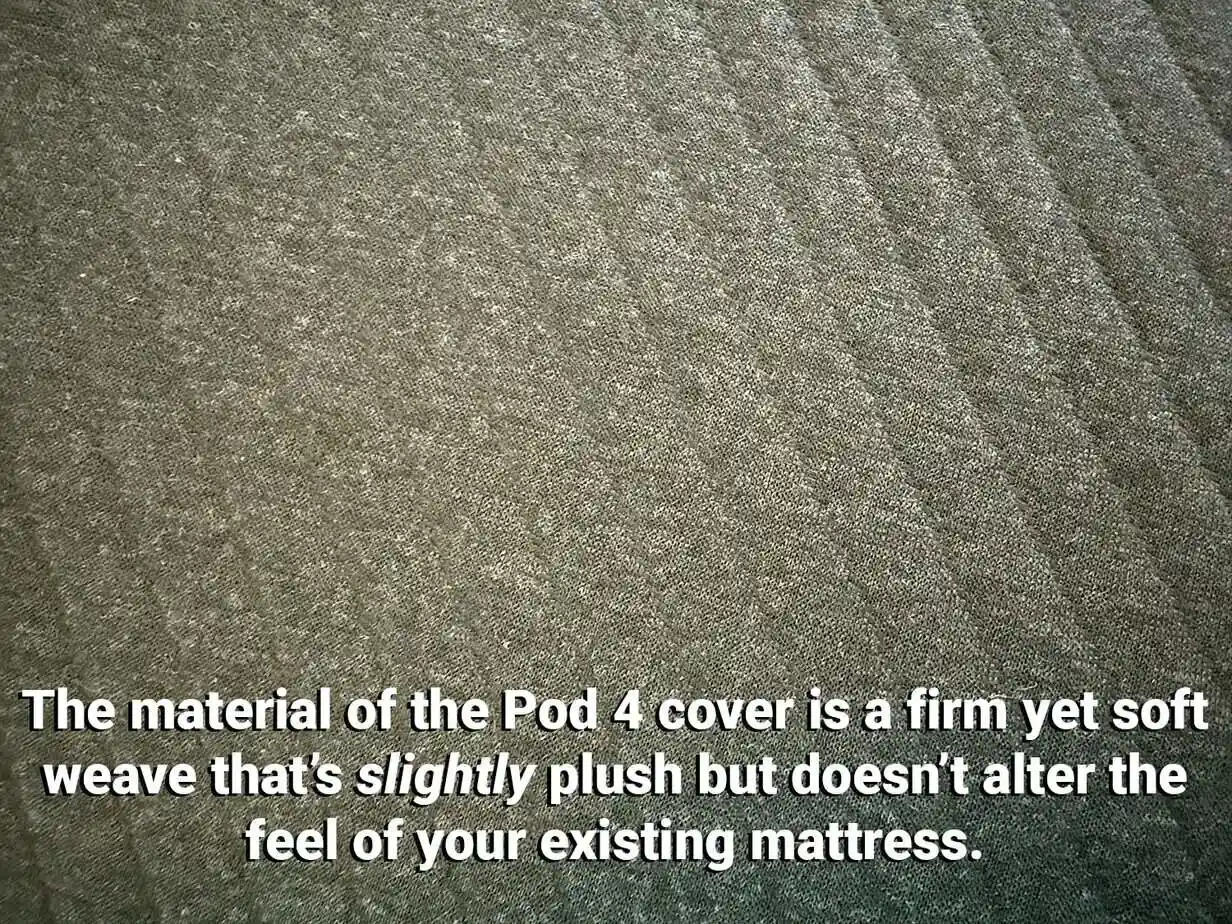
But it’s not just about climate control. The Eight Sleep also doubles as a sleep tracker. Thanks to smart sensors woven into the fabric, it monitors your heart rate, respiratory rate, sleep stages, and even snoring. All that data feeds into the app, giving you a nightly sleep score the next day, along with deep insights to help tweak your routines.
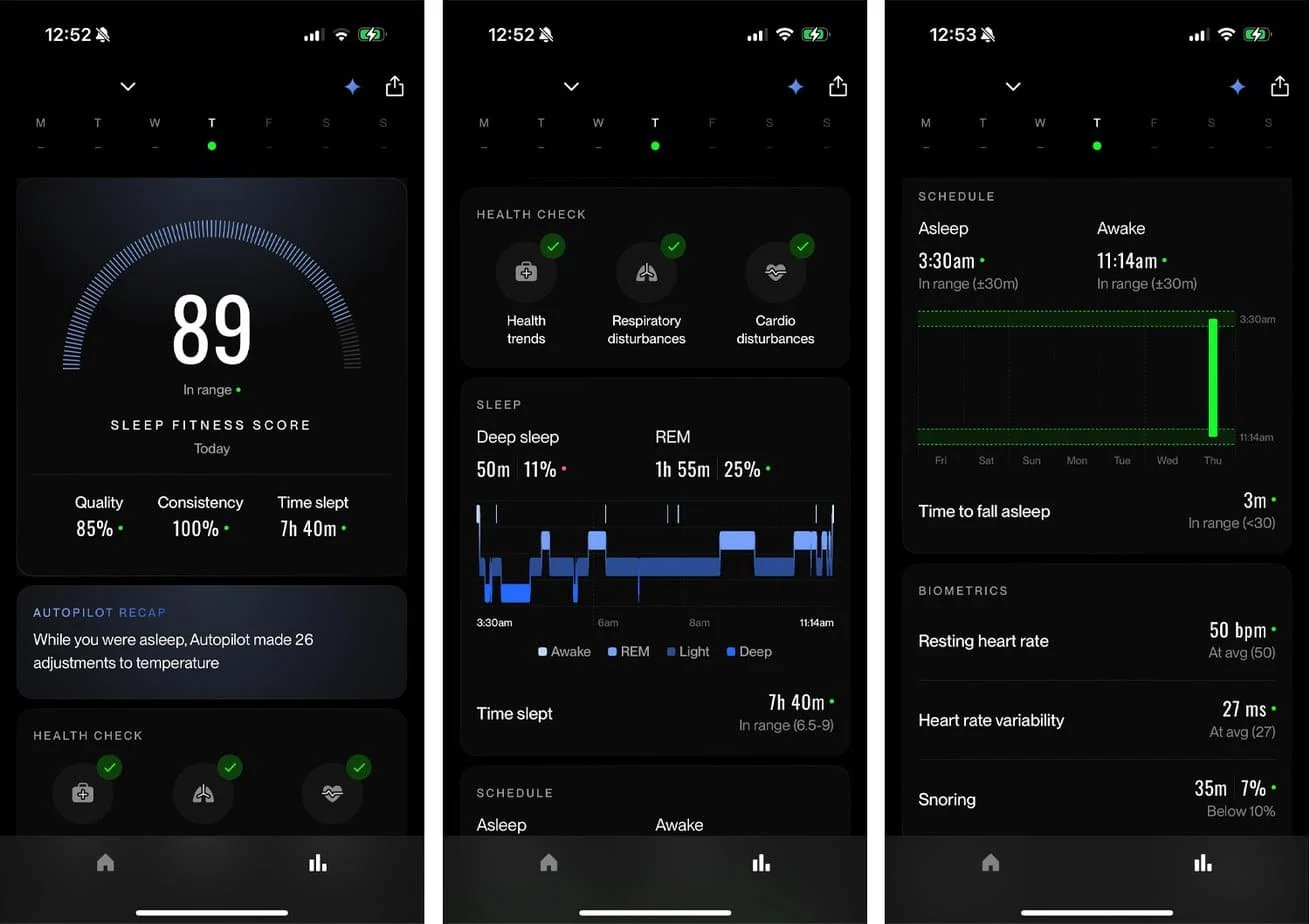
That said, the automation and tracking is only accessible through an Autopilot subscription, which is purchased separately from the Pod. And the Eight Sleep system requires WiFi connectivity at all times in order to function; if your internet goes out at any point, you can tether to your phone’s hotspot in a pinch.
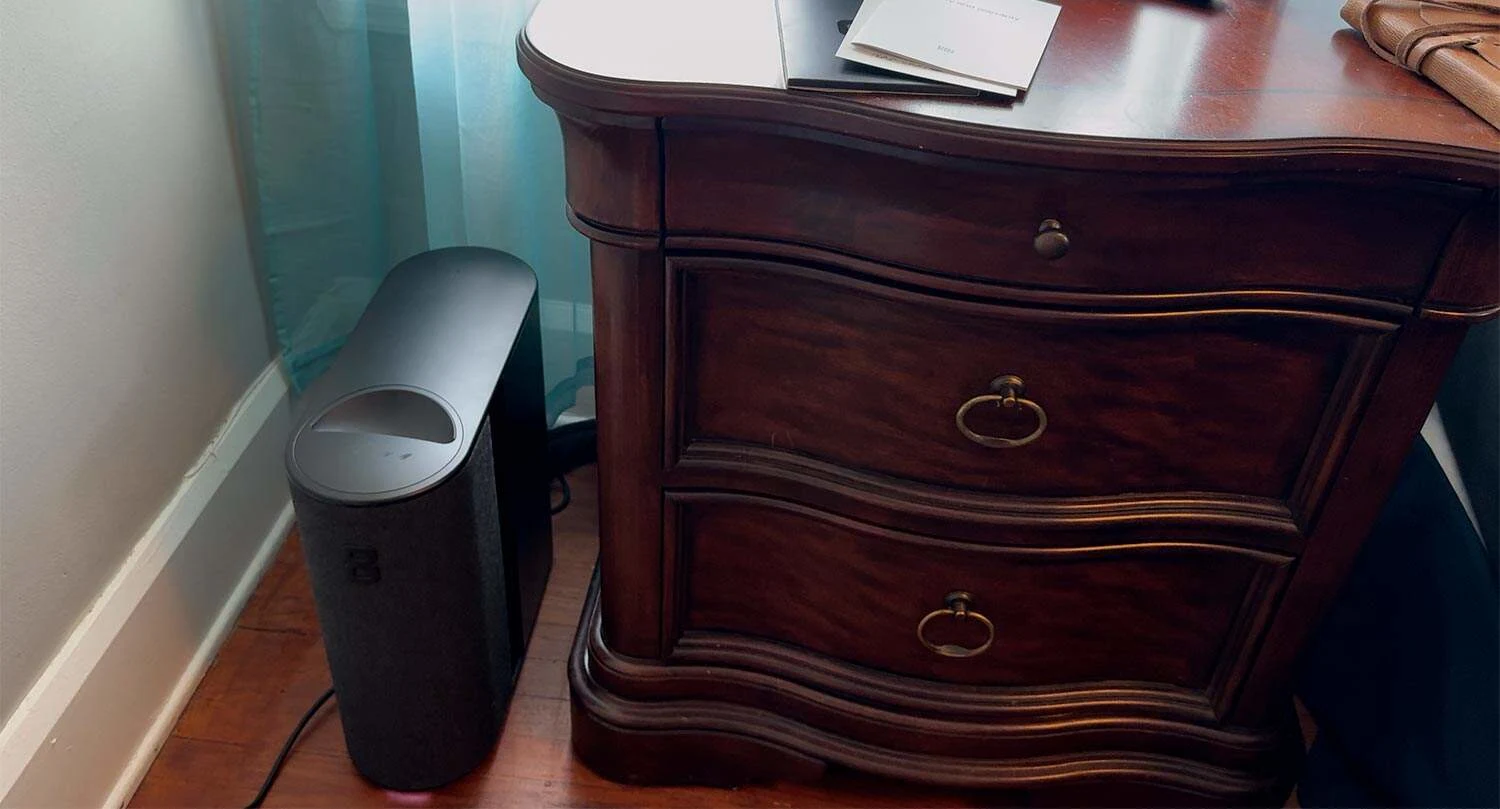
The latest iteration of the Eight Sleep (Pod 5) offers an optional blanket that syncs with the Pod cover’s heating and cooling for a fully immersive climate above and below. As of this writing, the blanket is only available with the purchase of a Pod cover and hub, and not as a standalone product.
Nitetronic Z6 Smart Anti-Snore Pillow
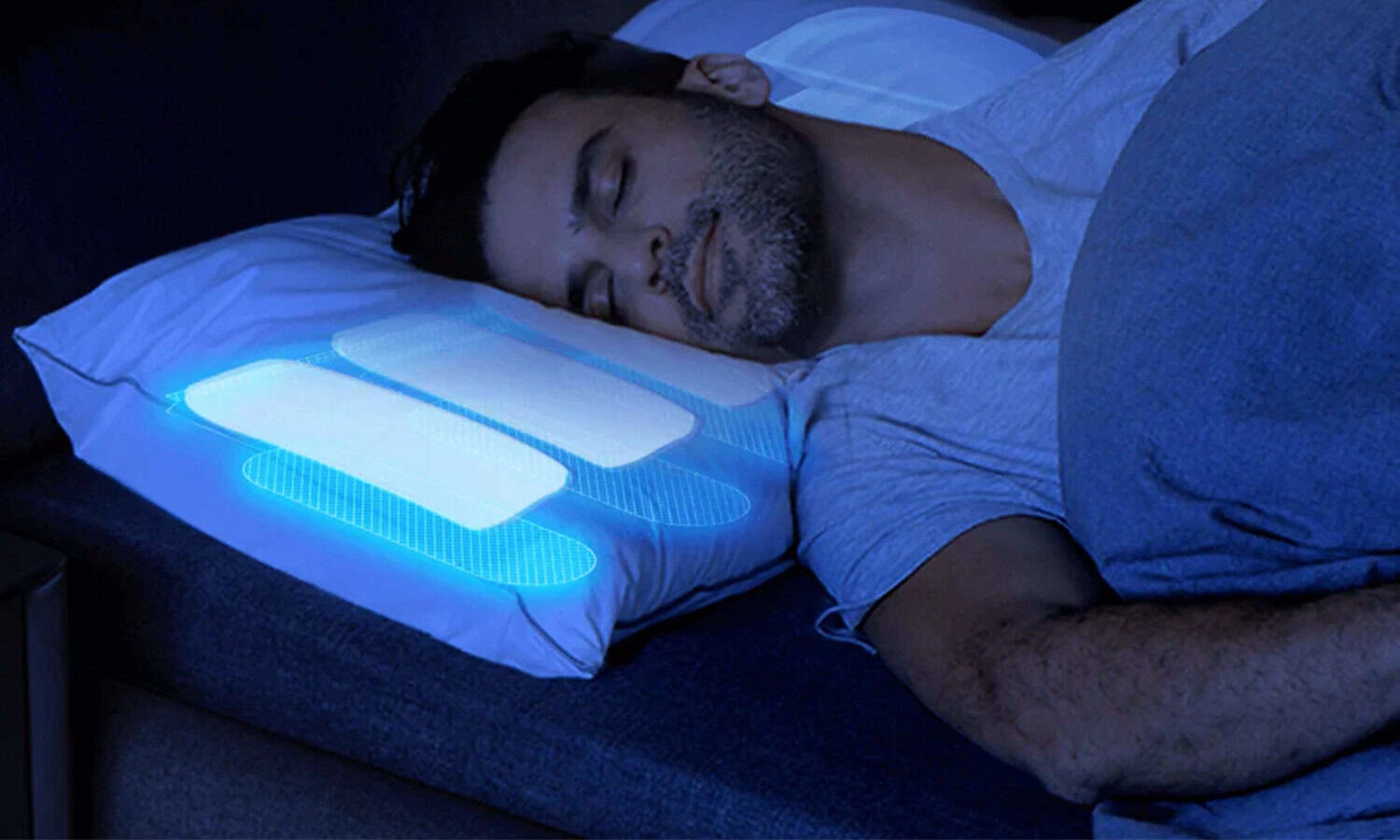
Not gonna lie: When I discovered this pillow existed, I immediately stopped what I was doing to go tell my husband about it. Even though I know that I occasionally snore, too. (I really hate admitting that, but I digress. His is way worse.)
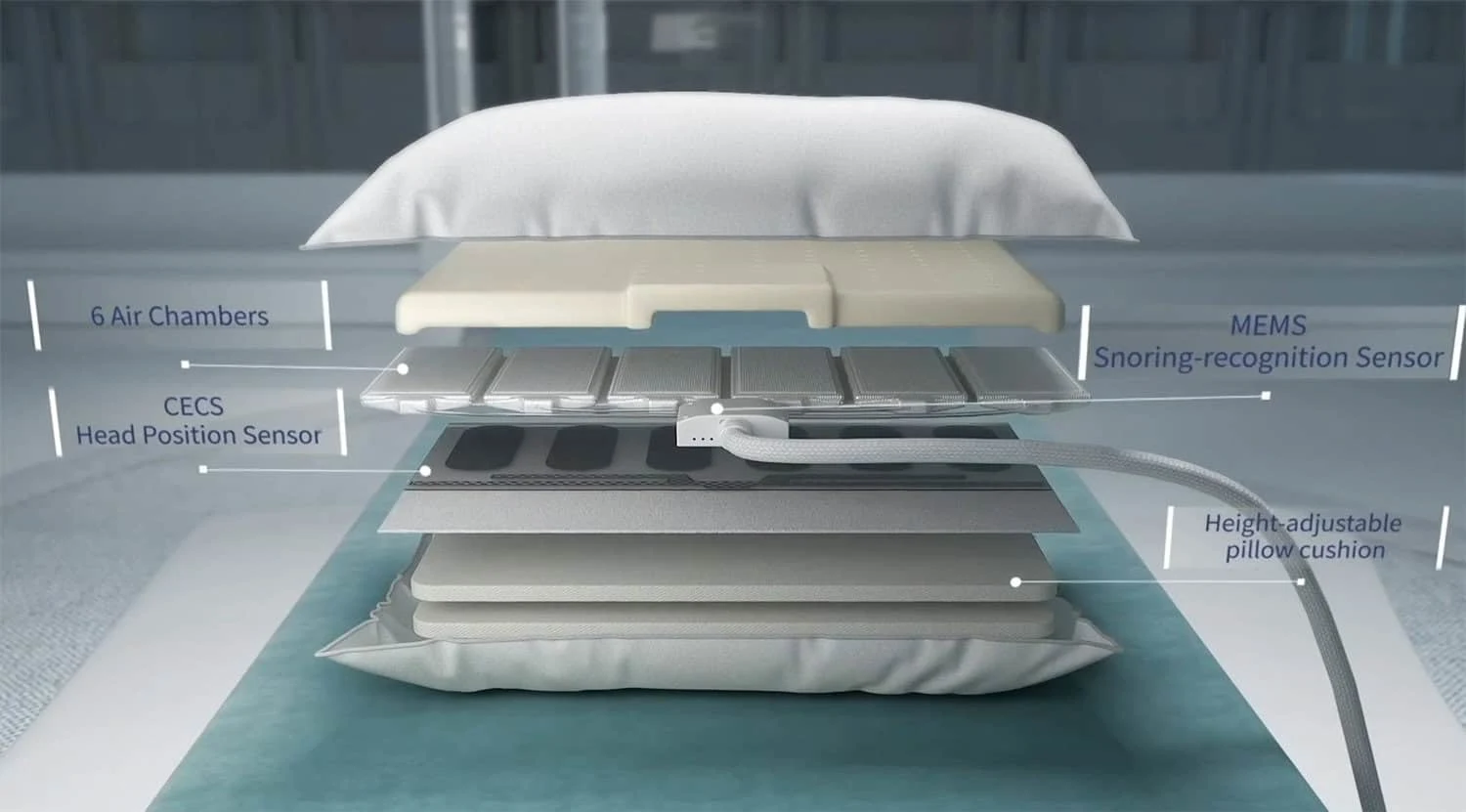
The Nitetronic Z6 Smart Anti-Snore Pillow is an incredible piece of sleep tech that automatically adjusts your head position to stop snoring when it starts. When the MEMS (micro-electromechanical systems) sensor in the pillow detects a sleeper’s snoring, the six airbags inside the memory foam pillow inflate as needed to gently roll their head to the side. This helps to clear the airway immediately and intervenes to stop the snoring.

If the Z6 is a little too rich for your pocketbook, the Z1 is an early generation model that’s available for $200 less, and like the latest version, comes with a 30-day trial and free shipping.
Ozlo Sleep Buds
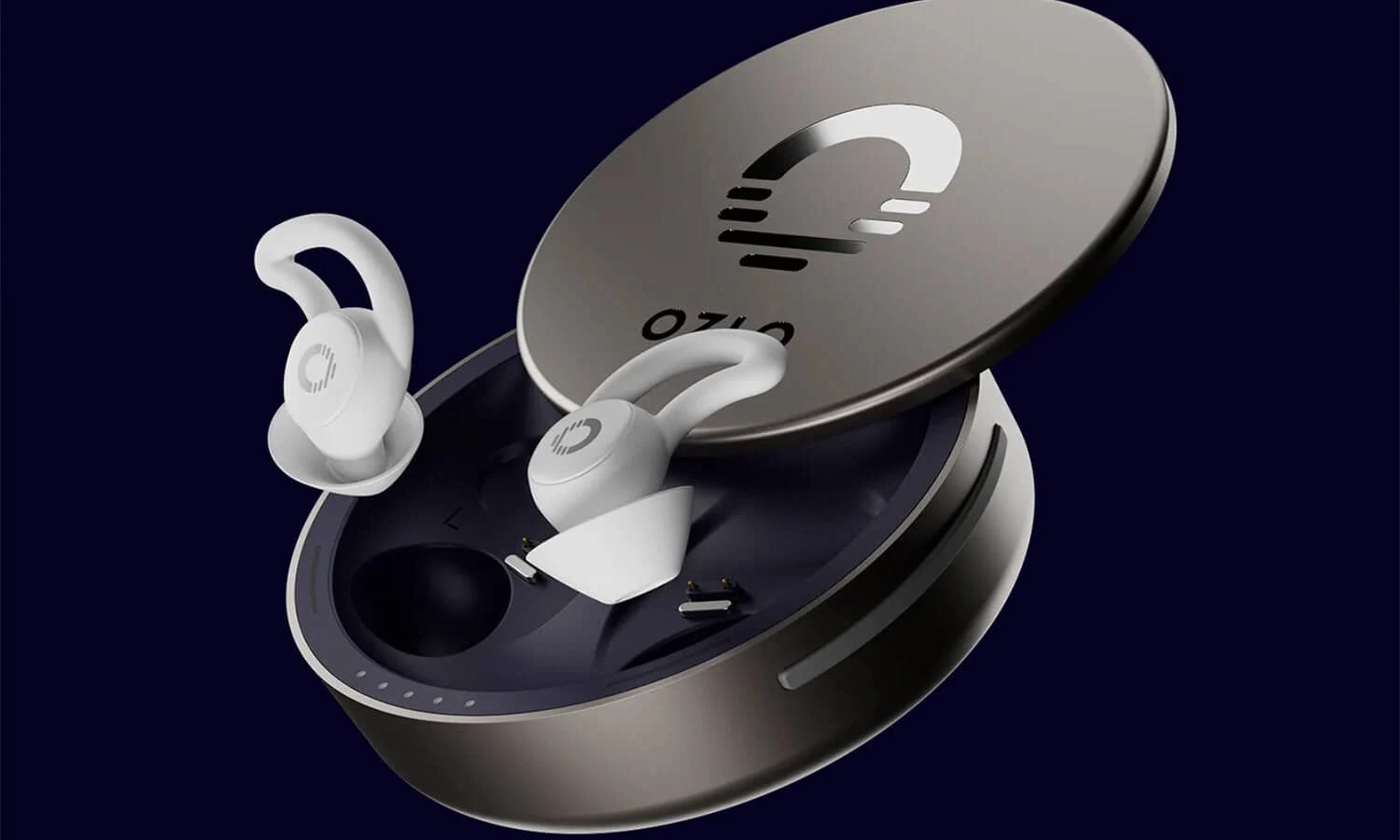
Those of us who sleep next to people who snore or who need music or ambient white noise to fall asleep should consider the Ozlo Sleep Buds.
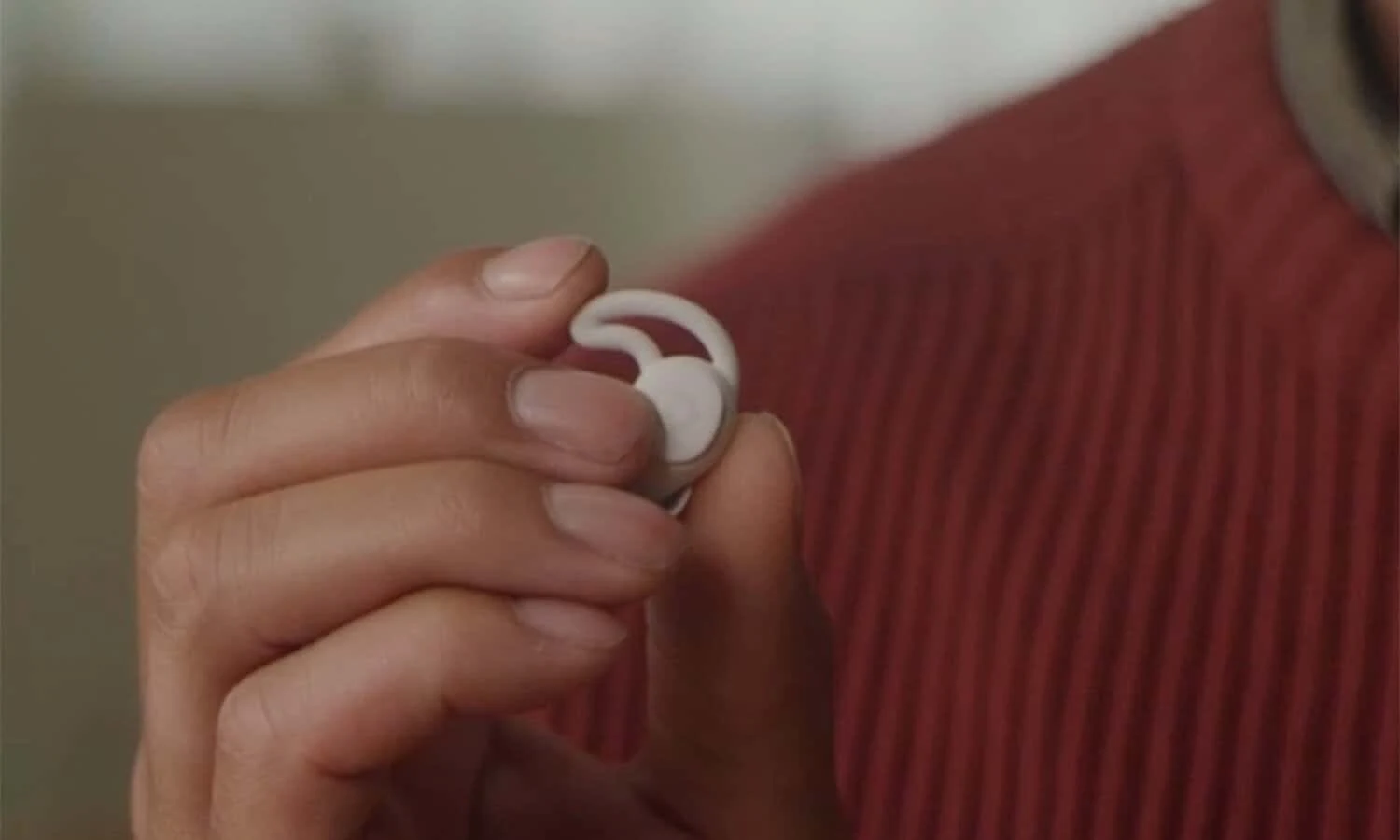
Featuring four sets of soft silicone tips so you can get a perfect (and comfortable) fit, the Ozlo Sleep Buds tuck inside your ear fully so they stay put no matter how your head is lying on the pillow. You can stream anything you like to listen to as you fall asleep, but biometric sensors detect when you’re fully asleep, pausing the playback and transitioning the sound to mask external noises that might disrupt your sleep for the rest of the night.

The BEST part? The Ozlo Sleep Buds have an in-ear alarm that wakes you up without disturbing your partner. If you sleep wearing plain foam earplugs (been there, done that), then you understand how loud an external alarm needs to be set in order to hear it in the morning. I love that the Sleep Buds fix this problem.
Bía Smart Sleep Mask

If you need to control sound and light to fall asleep, the Bía Smart Sleep Mask is an innovative piece of tech that looks a lot like a VR headset, but is designed to be comfortable when your head is against the pillow, no matter what position you sleep in.
Offering complete darkness (100% light blocking) across your eyes, the Bía Sleep Mask employs neurofeedback technology to measure, control, and improve sleep by actually guiding your brain through sleep stages during the night.

It’s basically like a one-on-one sleep coach for your literal brain.
As if that weren’t cool enough on its own, the Bía also provides soothing “neural soundscapes” that relax your mind and calm racing thoughts, making it easier to drift off to sleep, although you can stream your own audio if you prefer. When morning arrives, a natural sunrise alarm occurs inside of the mask at just the right point in your sleep cycle so you wake up refreshed and alert.

With the Bía, you get plenty of useful data about every night of sleep through the companion app, which is free; a lifetime subscription is included with any purchase. Although it’s designed for sleep, the Bía can also be used during meditation, short naps, and time shift adjustments when traveling across time zones.
Apollo Neuro Wearable

Delivering vibrations that soothe your mind and body so you fall asleep faster and stay asleep, the Apollo Neuro is a wearable piece of sleep tech that’s basically like a hug for your nervous system. It uses subtle vibrations (called Apollo Vibes™) to help signal safety to your brain and activate your parasympathetic (rest-and-digest) response.
The idea? To calm stress, boost focus, and encourage better sleep. It’s like practicing meditation without the effort or concentration.
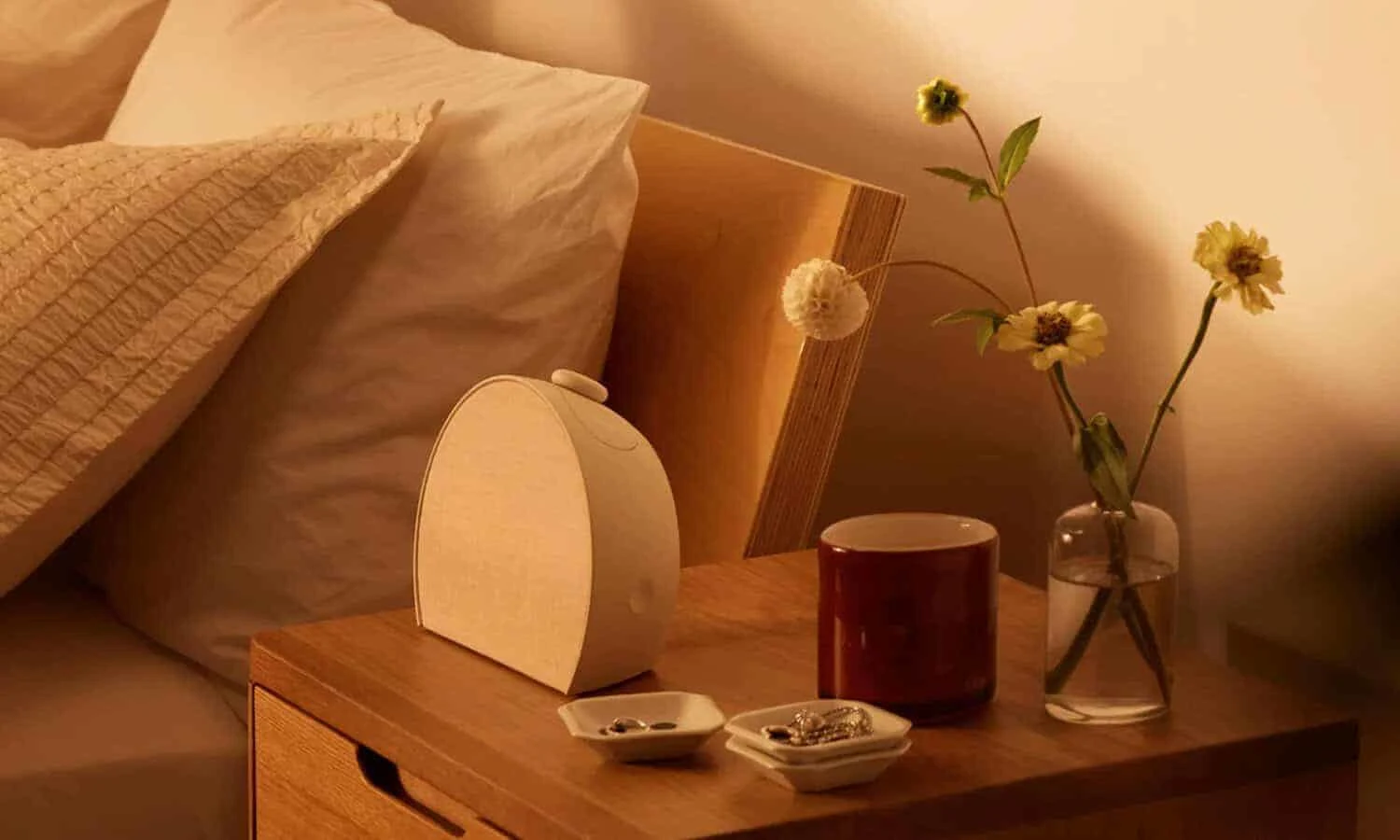
You can wear the Apollo on your wrist or ankle, or clip it onto your nightclothes if you don’t want it attached to your body, and it quietly hums away with vibrations that mimic natural rhythms like deep breathing or calming heartbeat patterns. You can control what vibe you want through the free Apollo Neuro app, choosing modes like Sleep, Focus, Energy, or Unwind.
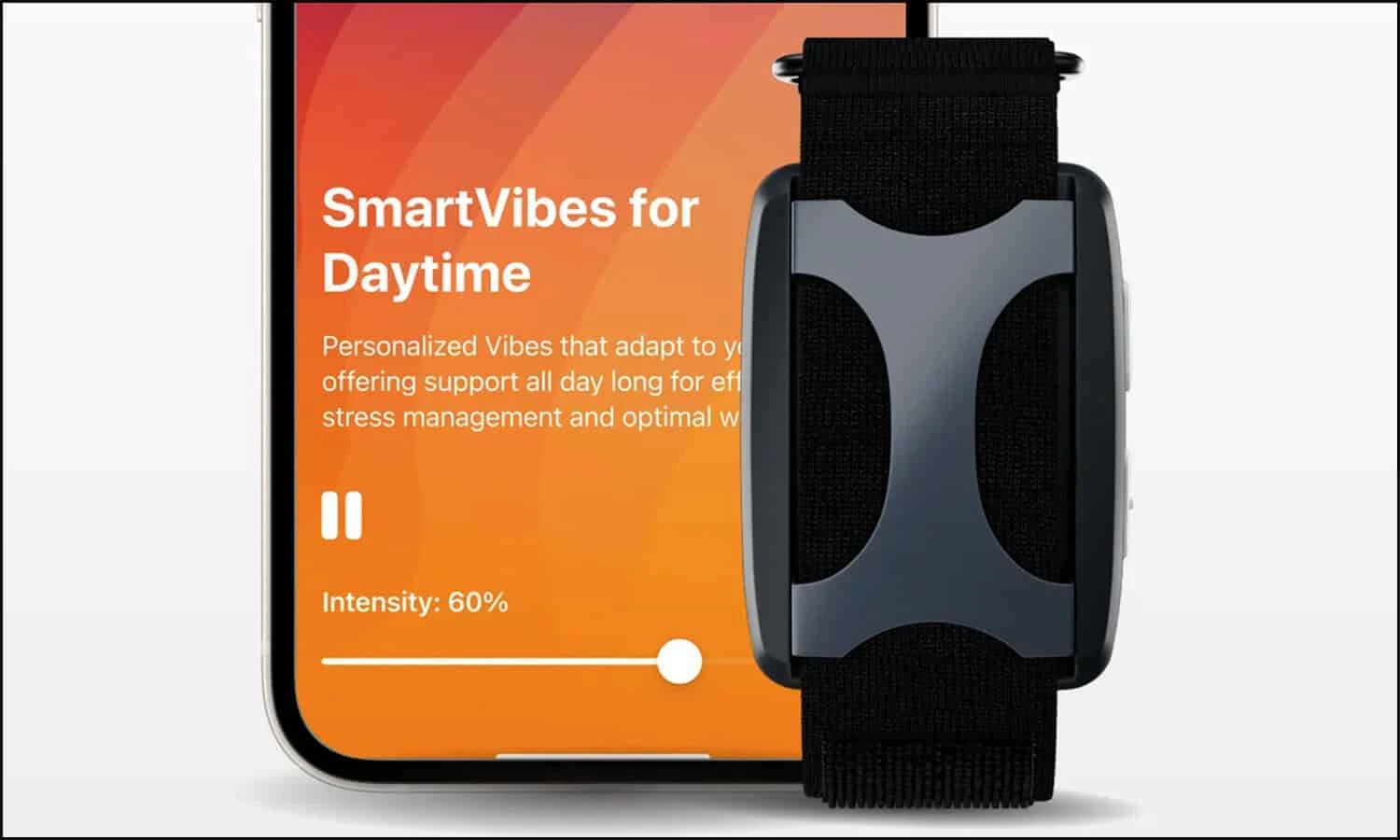
Apollo Neuro’s tech is grounded in neuroscience. Research and early clinical trials have shown real effects: up to 40% less stress and anxiety, an 11% bump in heart rate variability (HRV), 25% more focus, and users report gaining 30 to 60 more minutes of sleep per night.
Although you don’t have to have a subscription to use it, the full potential (and capability) of the Apollo Neuro is unlocked with the SmartVibes AI Membership, which runs about $100 per year.
Oura Ring 4

Technically tracking a lot more than just your sleep, the Oura Ring is an all-day solution if you’re interested in monitoring every aspect of your overall fitness, health, and sleep.
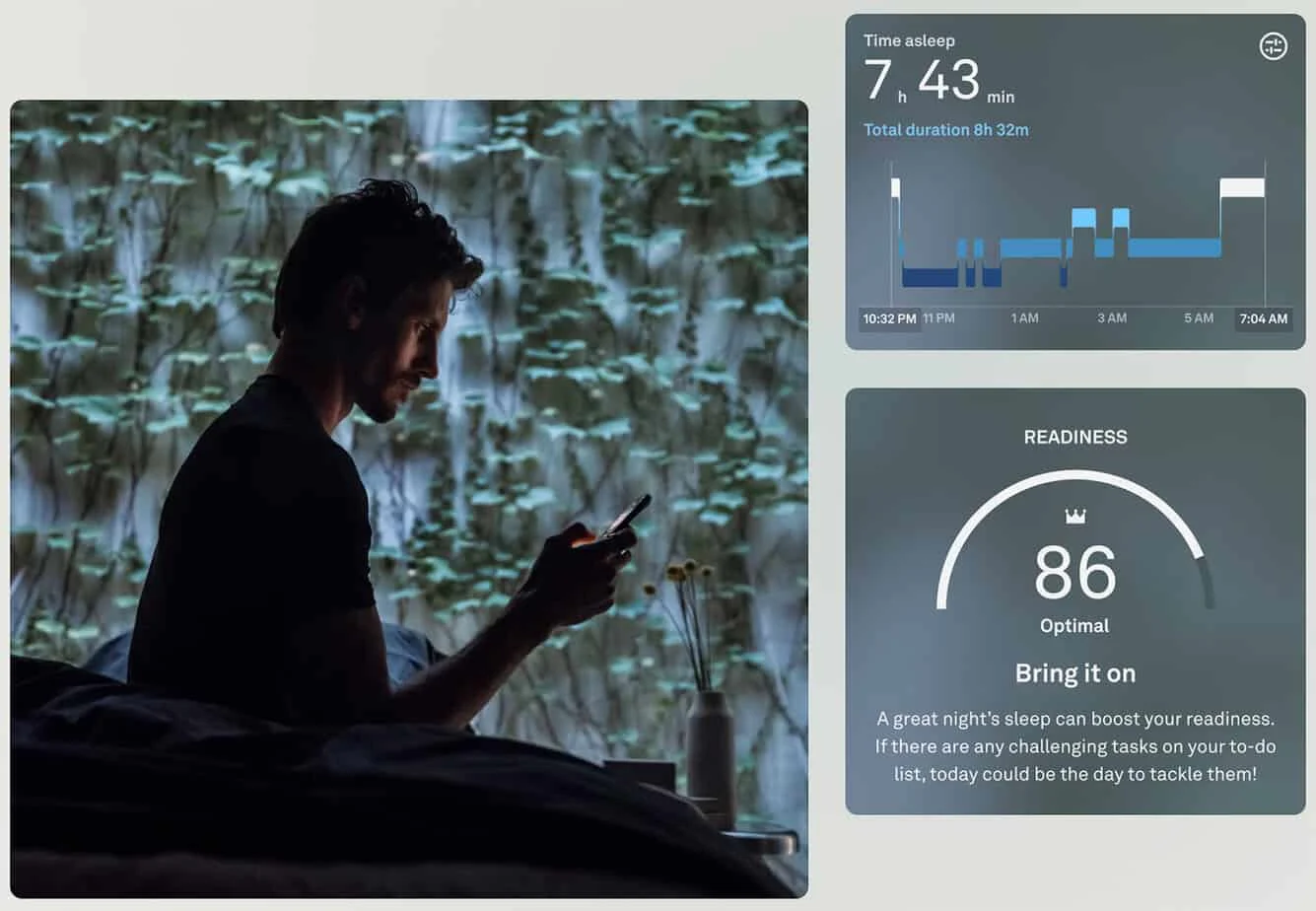
The Oura Ring has been around for a while, but the latest model boasts 18 sensor pathways (up from eight in the previous version), which helps it adapt to your unique finger shape and movement. The result? Far more reliable data. Paired with its redesigned app for iOS and Android, Oura organizes your data into three intuitive tabs: Today, Vitals, and My Health. This makes it easy to browse your daily stats, dive deeper into metrics, or track long-term trends.
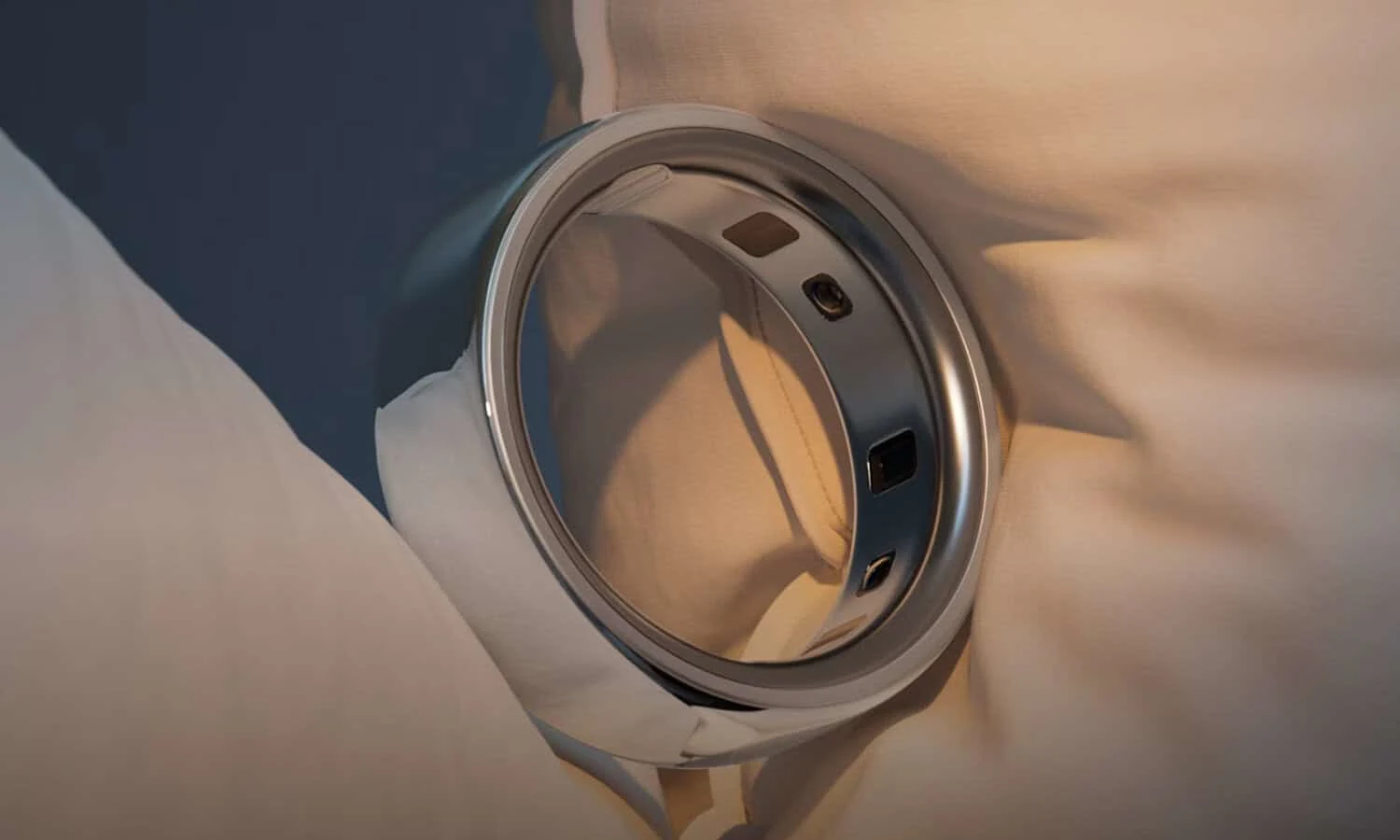
What really caught my eye, though, is the battery life on this little device. The Oura Ring 4 can last for eight days between charges. As someone who has to charge her Apple Watch almost daily, the Oura Ring has definitely got a leg up in that department.
(The Oura Ring doesn’t have GPS and the other bells and whistles of an Apple Watch, but still. Eight. Days!)
As with other tech on this list that uses a subscription model, the Oura ring has a monthly subscription of about $5.99 a month to unlock full data access after the free trial ends.
Hatch Restore 3
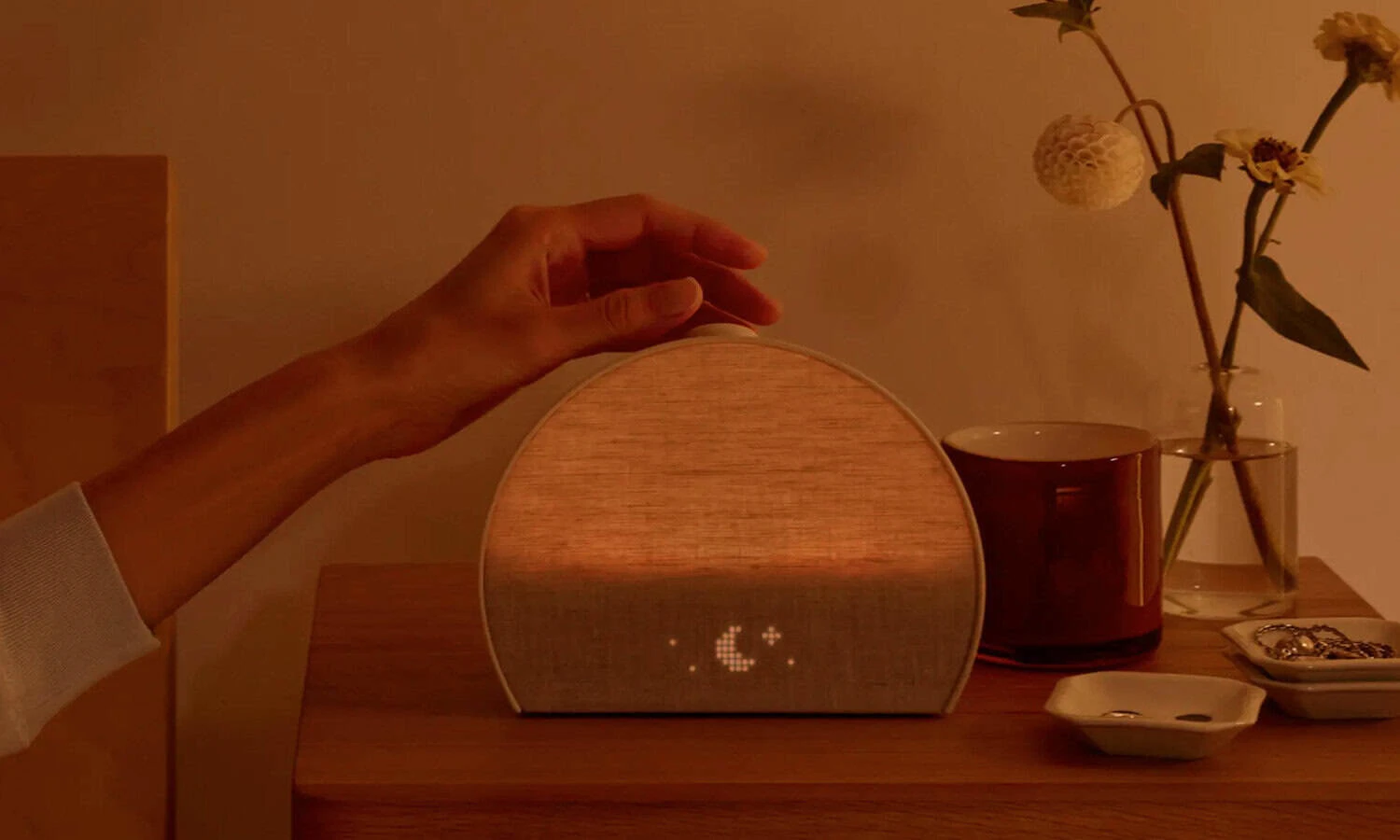
Waking you up with light rather than sound, the Hatch Restore 3 is a smart device that acts as a sunrise alarm clock, sound machine, bedside light, and unwind coach all wrapped into one. If you want to ditch the doom‑scrolling before bed, drift off smoothly, and wake up gently (without glaring screens or jarring alarms), the Hatch might be just what you’re looking for.
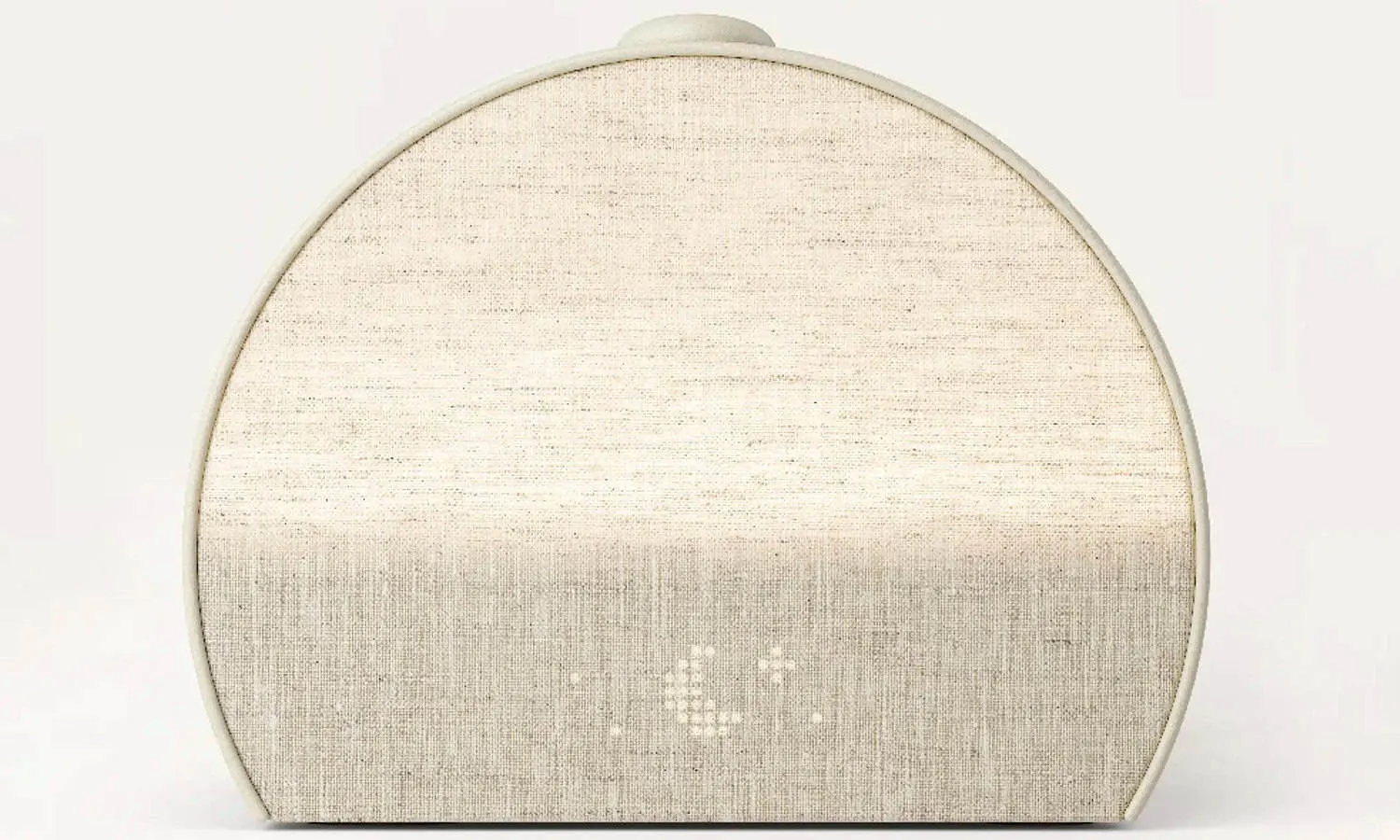
This uses customizable light cues (soft sunrise and sunset simulations) and sleep‑inducing sounds like white noise, nature ambiance, and meditations to guide your rest. With the app, you can create bedtime routines then start them with the device, keeping your phone (and its screen) out of the way.

At just $169, it’s one of the most affordable sleep tech devices on this list, especially if your ultimate goal is to improve your bedtime routine.
The only major drawback with the Hatch Restore 3 is that some of its features (like certain sounds, dynamic lights, and limited editions) are behind the Hatch+ subscription, which runs about $4.99 a month.
Dyson Purifier Humidify+Cool
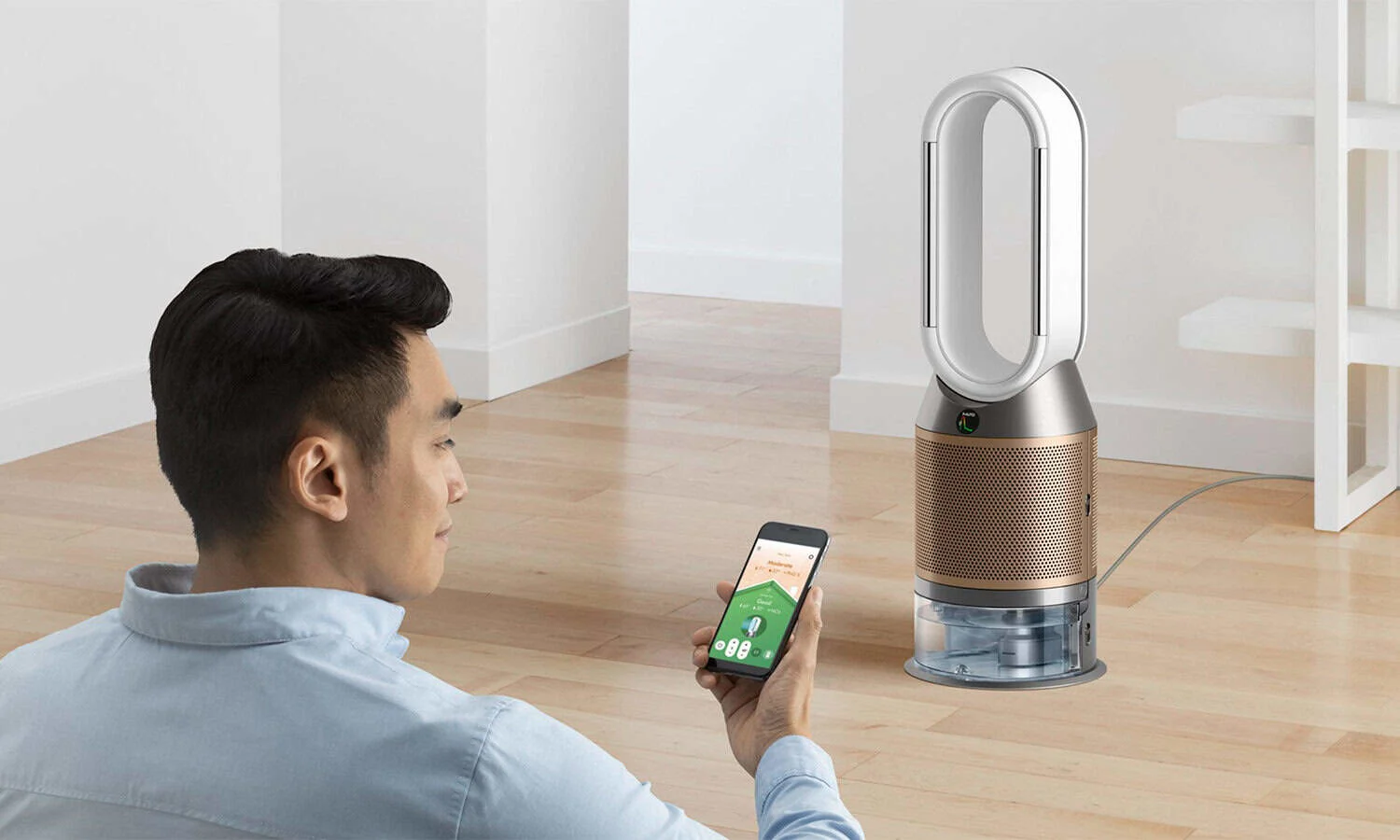
If you sleep (and breathe) better at night with a humidifier in the room, the Humidity+Cool PH2 De‑NOₓ air purifier from Dyson features a sleek design that takes very little space compared to traditional humidifiers: it’s just a foot in diameter and about 36 inches high.
Not to mention it sort of looks like a piece of modern art:
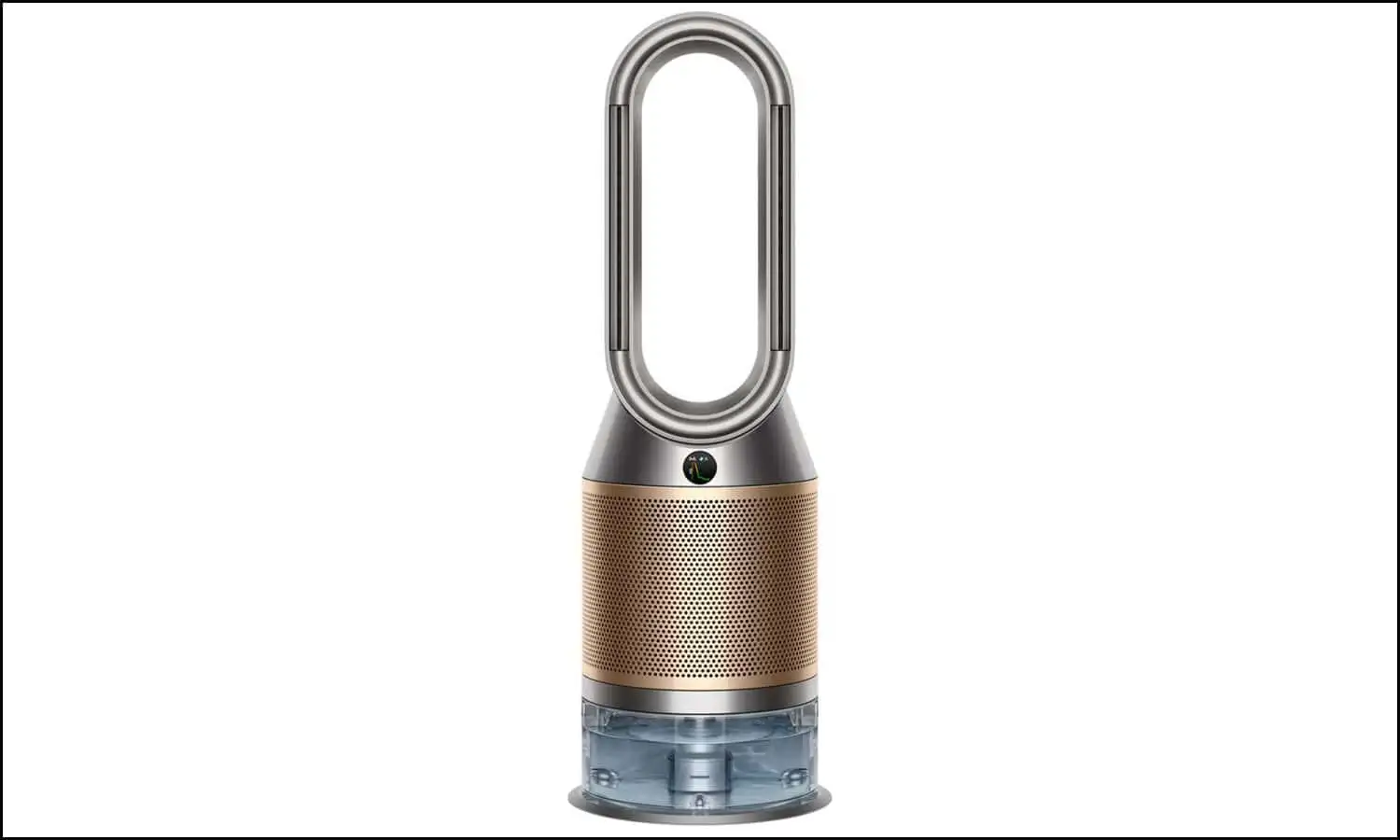
The Dyson PH2 De‑NOₓ is an all‑in‑one device that purifies, humidifies, and cools the air. It uses HEPA H13 filtration to trap 99.97% of ultrafine particles (as small as 0.3 microns), so it’s perfect for those who deal with allergies, while its K‑Carbon filter grabs up to 50% more nitrogen dioxide (kitchen fumes and gas stove byproducts that often sneak into your breathing space).
It also “continuously destroys formaldehyde” (although I can’t help but wonder how much formaldehyde is actually floating around the average home?), and it removes odors and harmful gases, as well.

As the Dyson purifies and hydrates the air, it also works as a bladeless fan using Dyson’s Air Multiplier™ tech to circulate cool airflow around the room. It has a one-gallon water tank that runs up to 36 hours per fill, sensing humidity changes in real time. You can control things (or set schedules) through the MyDyson app, and check air quality reports too.
The Dyson purifier does have a rather steep price point (coming in at about $1,000), but it’s not that outrageous considering everything it can do.
Gravity Cooling Weighted Blanket

Many of us sleep better at night with weighted blankets, but when you’re also a hot sleeper, it can be difficult to find that won’t roast you beneath its weight. The Cooling Weighted Blanket from Gravity has a 100% Lyocell fabric cover made from eucalyptus.

Available in 15lb or 20lb weights in single size, or 35lb Queen/King size, the Gravity blanket is filled with glass beads that are evenly distributed throughout to provide deep touch pressure stimulation that simulates the sensation of being hugged, all over.
Weighted blankets have been shown to reduce insomnia, anxiety, and fatigue, and although you might think they’re “only” for those with ADHD, autism, or mental health struggles, studies suggest the general population can benefit from them just as much.
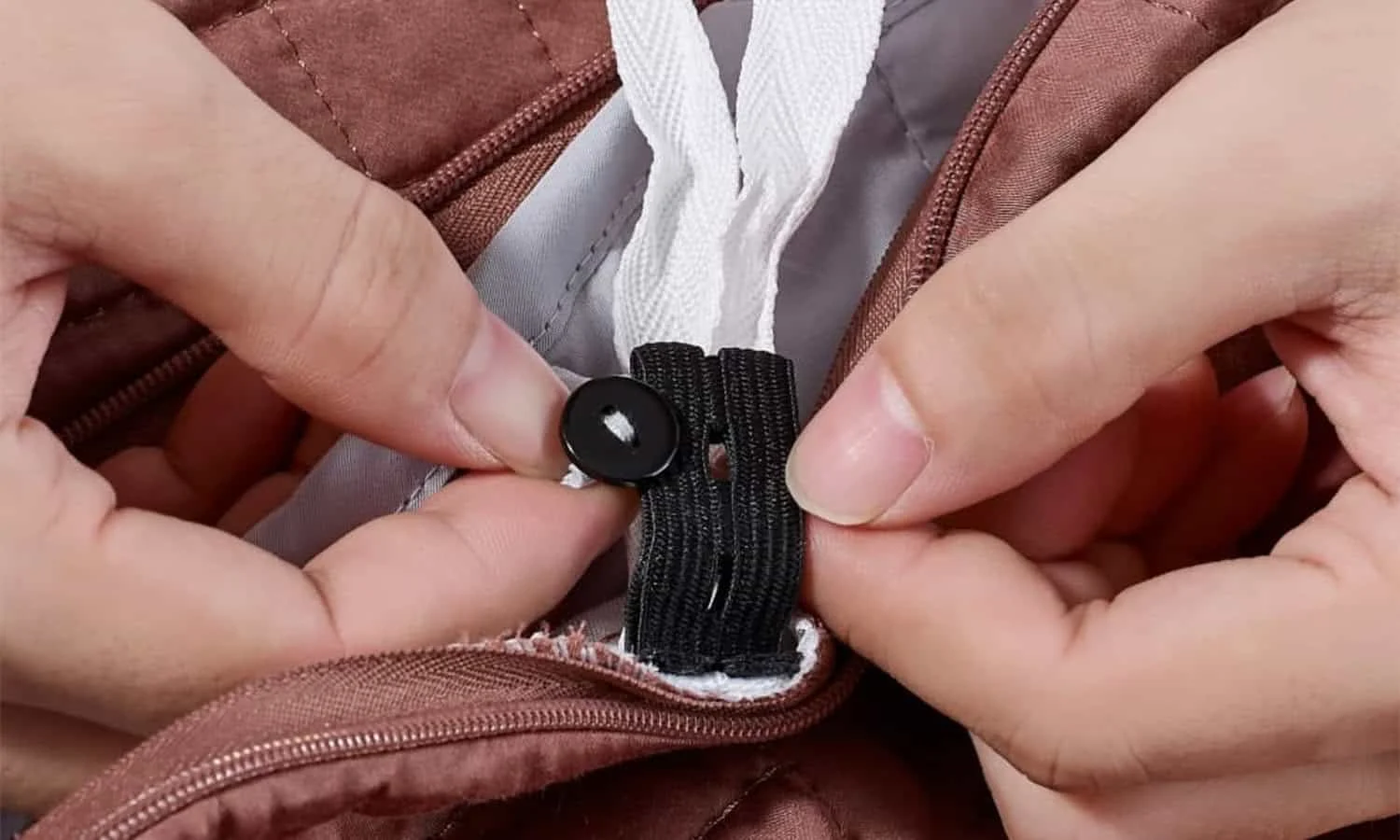
The best thing about the Gravity Cooling Weighted Blanket is that the outer cover is removable for easy machine washing; the inner blanket is spot-clean only. Many other weighted blankets on the market are spot-clean only and have no outer covering that’s washable, so the Gravity blanket is a great pick if you have pets, or even if you just enjoy snacking in bed.
(No judgment here. I snack in bed all the time.)
Closing Thoughts
At the end of the day (quite literally), the most effective sleep tech is the kind that fits seamlessly into your routine and actually makes a difference at the same time, whether it’s a smart ring that tracks your sleep cycles, a cooling mattress cover that stops your night sweats in their tracks, or a wearable that gently nudges you into deep sleep.
No gadget can entirely replace good sleep habits, but when paired with a consistent and mindful routine, these tools can be game-changers. If you’re ready to upgrade your sleep from “just okay” to genuinely restorative (or at the very least, better), these recommendations help you plug into smarter rest.

